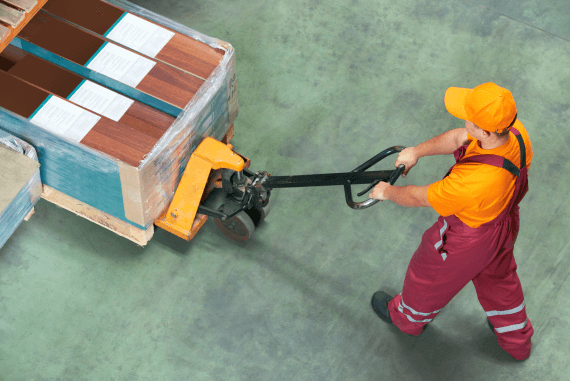- Home ››
- Health and Safety Training ››
- Manual Handling ›› Manual Handling Responsibilities
Manual Handling Responsibilities
Introduction

Health and safety at work is the responsibility of everyone, and manual handling is no different. Both employers and employees alike have responsibilities to reduce the potential for a manual handling injury to occur. Just as in other aspects of health and safety within a workplace, if only one side takes safety seriously, then accidents will happen all too frequently.
For a business to have a comprehensive health and safety culture, and a place of work where the probability of an accident occurring is extremely low, then both sides – management and workers – need to take safety seriously at all times.
The dangers of unsuitable manual handling techniques include injuries that may not be life-threatening, but are nonetheless extremely painful, and have an impact upon a person’s movement. Not only will this impact them in their life away from the workplace, but it may also prevent them from carrying out their daily tasks with the company until their injury heals. In this situation, it can cause a financial and logistical headache for management as they are either short-staffed, or deal with the hassle and expense of getting a temporary worker in place to cover for the absent employee.
Employers Responsibilities Regarding Manual Handling
Manual handling is similar to other hazards with regards to the health and safety of workers in that the first step which employers should consider is whether the danger can be removed through avoidance. In other words, can changes be made which mean the employee(s) no longer needs to engage in the task? As far as manual handling is concerned, these changes can include re-designing the work area so that objects no longer need to be moved from one place to another.
Of course, in many businesses the only way to completely eliminate the need to manually handle and manipulate loads is to shut down and cease to function, which is obviously not a viable option! It is an employer's duty to eliminate the risks as far as is reasonably practical. Where it would not be practical and cannot be eliminated or avoided, a risk assessment and suitable control measures need to be introduced to help prevent manual handling injuries to workers.
The findings of the risk assessment will determine the next course of action. The most common steps will be the introduction of mechanical assistance aids which can be used to move the load, adjusting the load if possible such as splitting it up into smaller pieces so that it is not one single heavy piece, and the provision of manual handling training to give workers a greater knowledge of the implications and risks associated from incorrect manual handling techniques and instruction on how to manipulate loads correctly and with minimal risk of injury. Due to the large numbers of employees needing time off work through manual handling injuries, and the subsequent financial implications for the company, many businesses view manual handling training as an essential part of their health and safety training programmes as it will often pay for itself in the long run.
What are Employee's Responsibilities With Regards to Manual Handling?
It is all too easy to think that responsibility for manual handling safety rests solely upon management and that it is up to the employer to prevent harm from coming to workers. Whilst it is true that employers do have responsibilities regarding manual handling and the health and safety of their workers, the employees themselves must also do their part.
It is the responsibility of employees to use any equipment that has been provided by management to assist with the prevention of manual handling injuries from occurring. Not only should they use it, they should do so in accordance with the training that should have been provided to them in its correct use and operation. A failure to use equipment correctly will not only reduce or eliminate its effectiveness at preventing injuries, but may even pose a danger to health and safety in its own right. For example a mechanical aid that is used to prevent manual handling conditions such as a pulled muscle can in fact cause a more serious injury or even death if it is used incorrectly, such as a head trauma or crush injury.
Although it is an employer's duty to carry out suitable risk assessments and put into place provisions for safeguarding the health, safety and wellbeing of their workers, employees do have some responsibilities also. For a start, they need to perform manual handling tasks and use assistance equipment in accordance with the training, instruction and guidelines that they should have received. If an employee has been trained and taught about the importance of safe lifting techniques to prevent injury, then it is important that they use this knowledge whenever they have a need to lift an object and put it somewhere.
Employees should also notify and inform their employer of shortcomings or deficiencies in the organisation's health and safety procedures or equipment.


